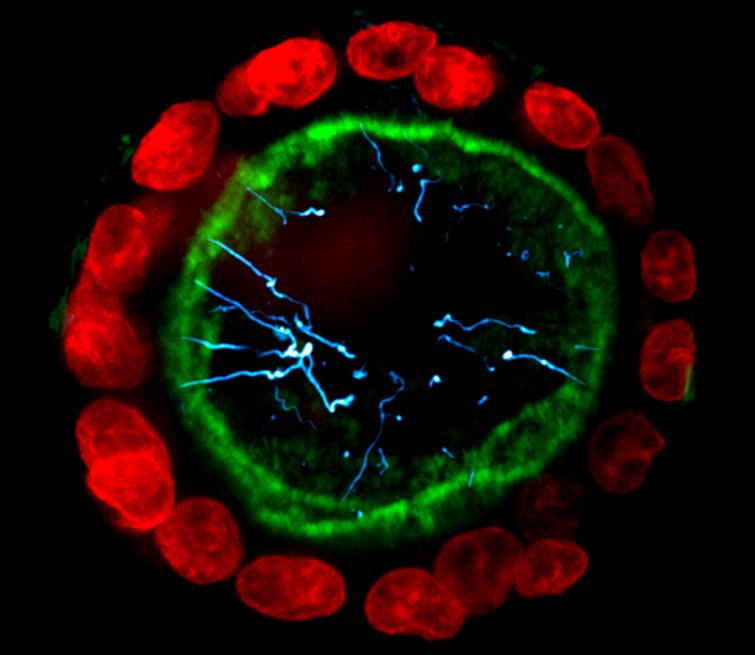
 News
News
Division: a key moment in establishing cell polarity
Understanding the mechanisms underpinning the establishment of cell polarity is a major line of research on the process of carcinogenesis. The Membrane Trafficking and Cell Division Unit, directed at the Institut Pasteur by Arnaud Echard (Institut Pasteur/CNRS UMR 3691), is looking into apical-basal polarity acquisition mechanisms during cell division when organs are formed. As part of this research, the team has recently discovered the crucial role of a GTPase-type enzyme known as Rab35.
Epithelia are layers of cells that cover the surface of our bodies and internal organs. They form a genuine barrier and perform various other functions. These roles are possible since epithelial cells are non-symmetrical and organized into two opposite poles. To use the proper terminology, they are organized by 'apical-basal' polarity with an apical and basolateral pole. These poles constitute distinct, specialized domains that enable the transport of compounds from the cell interior to the external environment and vice versa. Most tumors originate in the epithelial tissue and loss of polarity is a common occurrence in tumor progression. Therefore, one major line of research on the process of carcinogenesis lies in understanding the mechanisms underpinning the establishment of polarity.